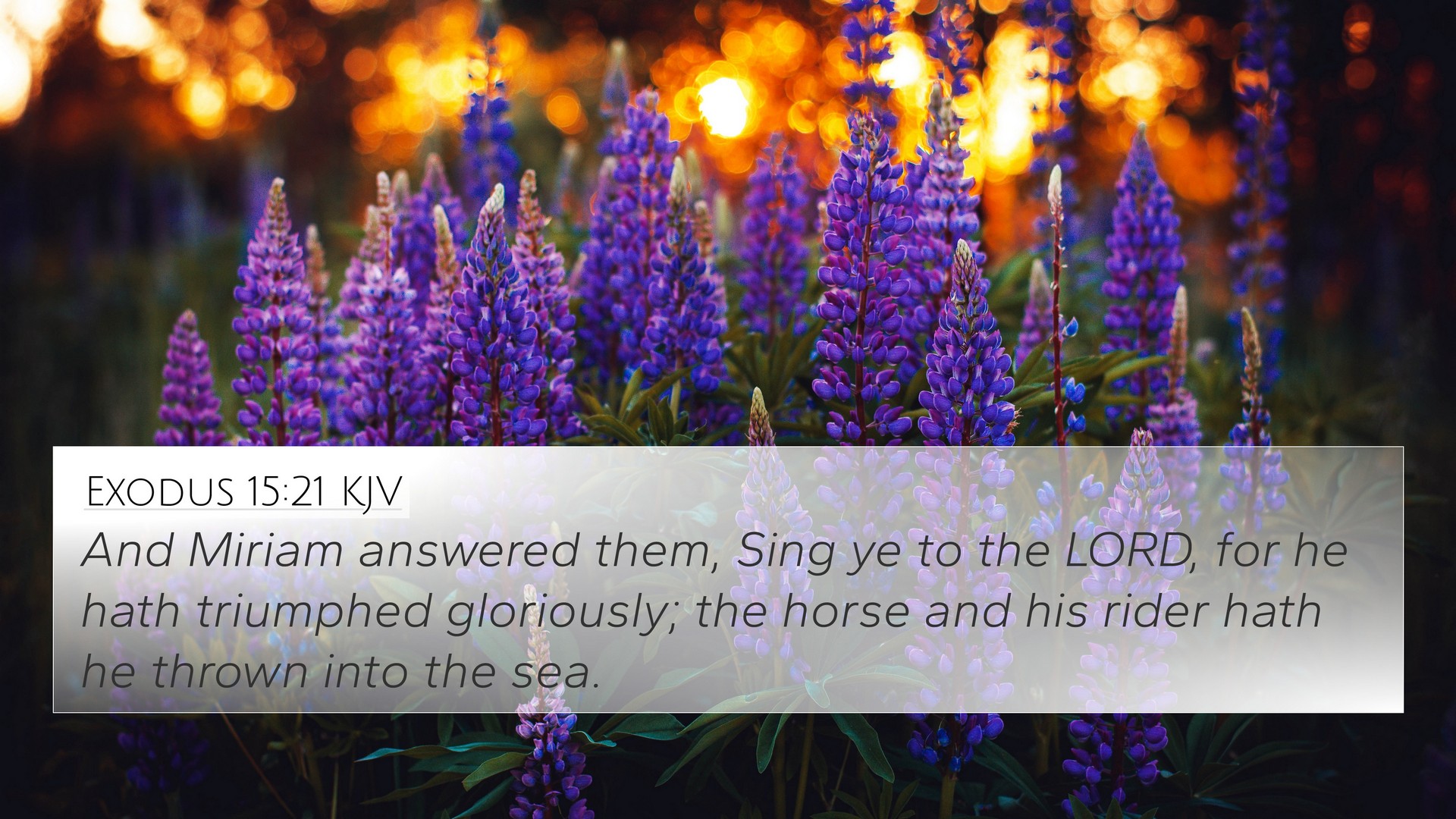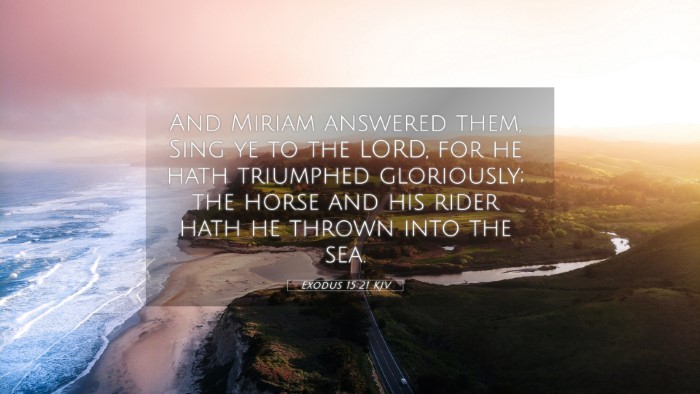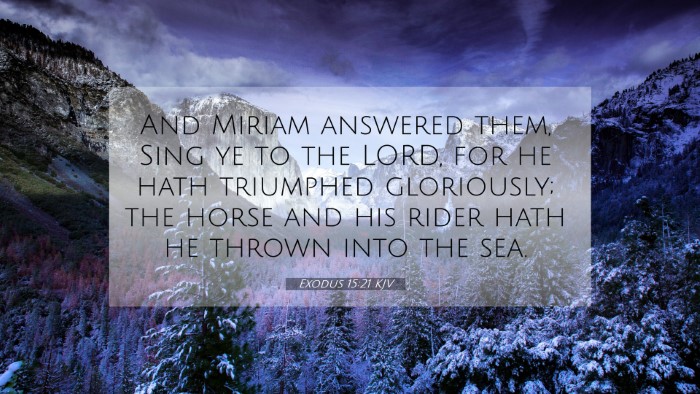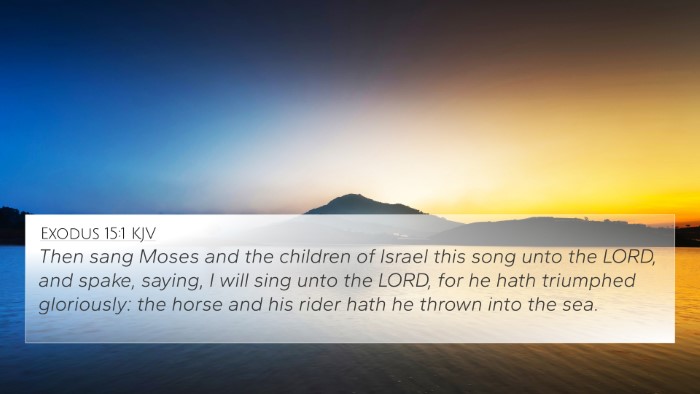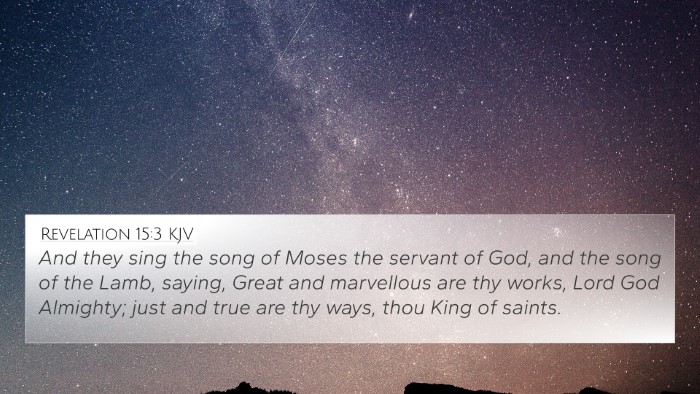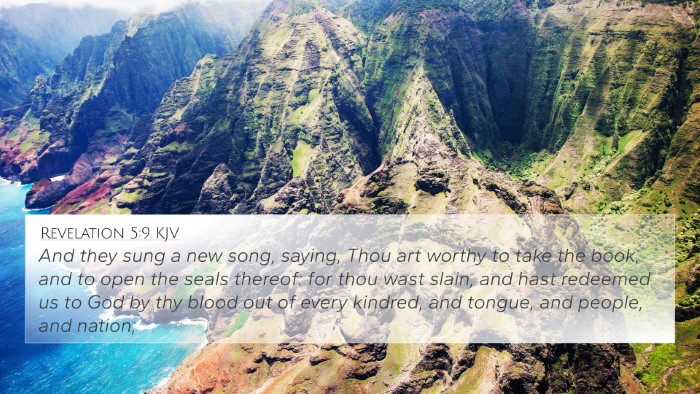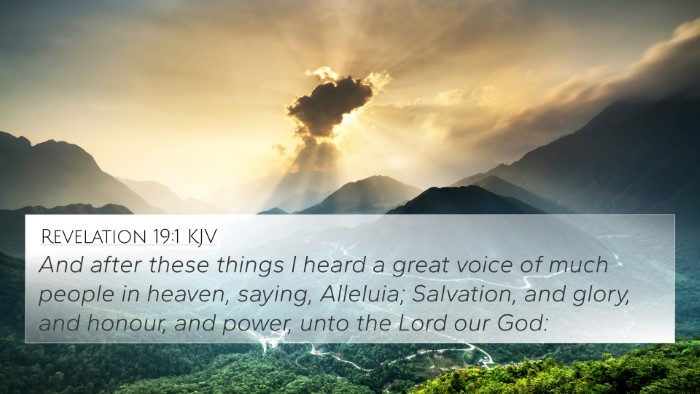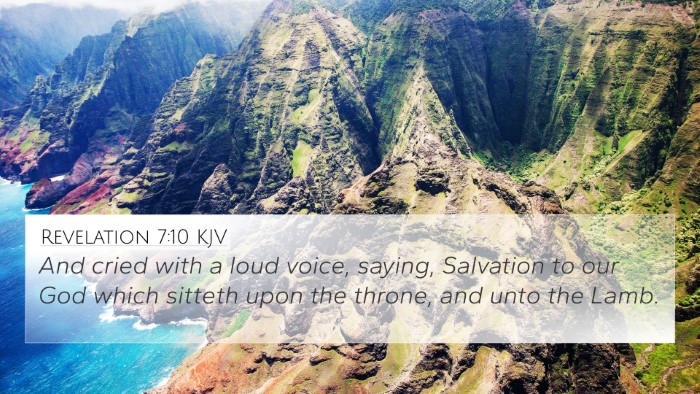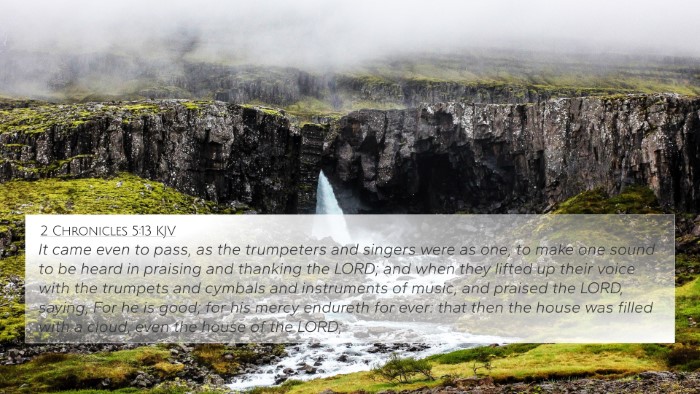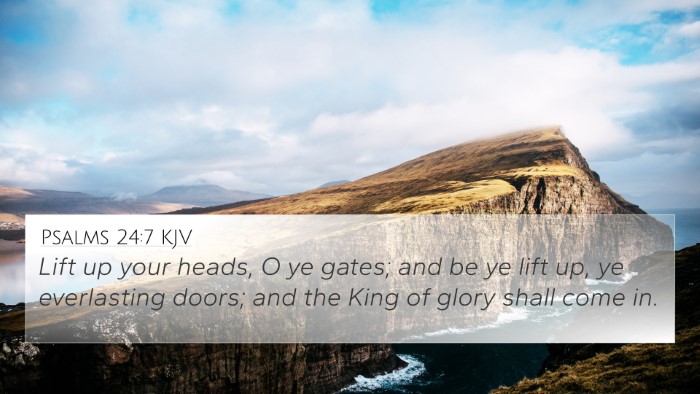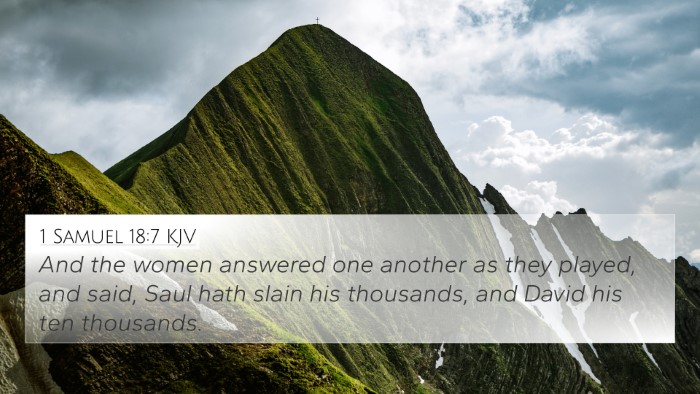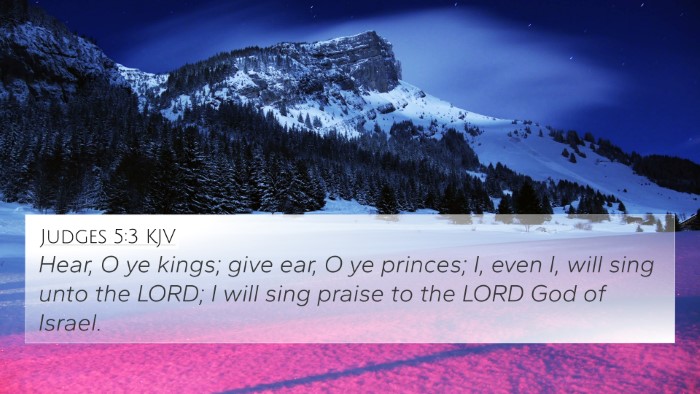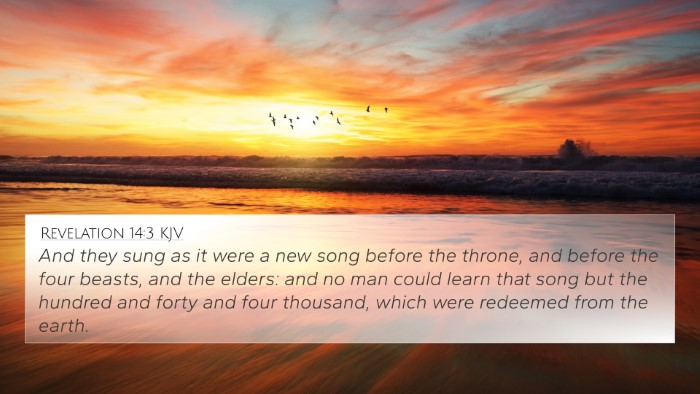Exploring the Meaning of Exodus 15:21
Exodus 15:21 states: "And Miriam answered them, Sing ye to the Lord, for he hath triumphed gloriously: the horse and his rider hath he thrown into the sea." This verse follows the miraculous crossing of the Red Sea and highlights the joy and praise of the Israelites, particularly that of Miriam, the sister of Moses. In this summary, we draw insights from public domain commentaries by Matthew Henry, Albert Barnes, and Adam Clarke, to provide a comprehensive understanding of this significant biblical text.
Context of the Verse
This particular verse is situated within the aftermath of Israel's deliverance from Egypt, where they witnessed the dramatic drowning of Pharaoh's army in the sea. This event is not only a physical liberation but signifies spiritual freedom and triumph over oppression. Miriam's role demonstrates the importance of celebratory worship in acknowledging God’s mighty acts.
Interpretation and Breakdown
-
Miriam's Leadership: Matthew Henry emphasizes Miriam's prophetic role as one who leads in worship. Her response is a rallying call to the women of Israel to join in gratitude and praise to God, reflecting a natural reaction of joy after deliverance.
-
Call to Worship: According to Albert Barnes, the directive "Sing ye to the Lord" indicates a communal action, emphasizing the theme of collective worship as a response to divine intervention. Singing becomes a means of expressing thankfulness and allegiance to God.
-
God’s Victory: Adam Clarke notes that the phrase "hath triumphed gloriously" highlights God's sovereignty and victory over adversaries. The contrast of a sea of horses and riders humbles the might of Egypt in the face of God's power.
-
Symbolism of the Sea: The sea in this context represents chaos and the unknown. God's control over the waters underscores his omnipotence, showcasing that no force, however powerful, can withstand His will.
-
Proclamation of Deliverance: This verse serves as a proclamation not only of physical deliverance but spiritual deliverance as the Israelites recognize their identity as God’s chosen people who have been saved from bondage.
-
The Importance of Remembering: The act of singing and celebration is a method of memorialization for the Israelites. As per Henry’s analysis, such communal activities ensure that the memory of God’s deliverance remains alive in the hearts of succeeding generations.
Bible Cross-References
Exodus 15:21 connects to several other verses throughout the Bible that reflect similar themes of praise, deliverance, and God's sovereignty:
- Exodus 14:30-31: The crossing of the Red Sea, where Israel witnesses God's salvation.
- Psalms 118:14: "The Lord is my strength and song, and is become my salvation," reflecting a similar theme of praise.
- Isaiah 12:2: "Behold, God is my salvation; I will trust, and not be afraid," linking trust in God with salvation.
- 1 Corinthians 15:57: "But thanks be to God, which giveth us the victory through our Lord Jesus Christ," showing a New Testament parallel of God’s triumph.
- Revelation 15:3-4: The song of Moses and the Lamb, celebrating God's victory over evil in the end times.
- Psalm 68:1: "Let God arise, let His enemies be scattered; let those also who hate Him flee before Him," focusing on God's triumph over adversaries.
- Isaiah 43:2: God's promise of protection in perilous times, assuring His people of His presence during trials.
Conclusion
Exodus 15:21 encapsulates a pivotal moment in Israel's history where communal praise arises from an experience of divine deliverance. Through the insights from Matthew Henry, Albert Barnes, and Adam Clarke, we are reminded of the profound significance of worship in the lives of believers. The connections fostered through this verse reveal a rich tapestry of themes woven throughout scripture, affirming God's sovereignty, the importance of remembrance, and the communal nature of worship.
